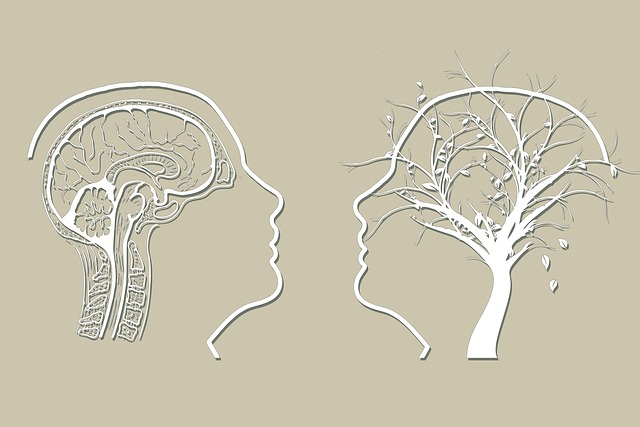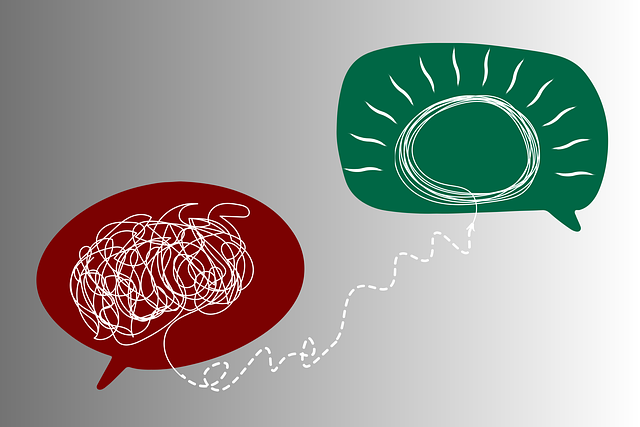Depression, a serious mental health condition with telltale signs like persistent sadness and thoughts of self-harm, can be prevented and managed through specialized support like Wheat Ridge Sexual Abuse Survivor Therapy. This therapy focuses on building resilience, offering cultural sensitivity workshops, individual therapy, and group support to survivors from diverse backgrounds. By incorporating mindfulness, deep breathing, cognitive reframing, and a healthy lifestyle—including balanced nutrition, regular exercise, and adequate sleep—individuals gain mental fortitude and emotional stability. Social connections, encouraged through Wheat Ridge's programs, further reduce depression risk by providing belonging and support.
Depression is a prevalent yet manageable condition. This article explores comprehensive strategies to prevent and combat depression, offering a multi-faceted approach to well-being. From understanding the signs and symptoms to adopting healthy lifestyle choices, building resilience, and fostering social connections, these tactics provide a roadmap to mental fortitude. Additionally, we delve into professional help options, including specialized therapy like Wheat Ridge Sexual Abuse Survivor Therapy, emphasizing the importance of personalized support in the journey towards recovery.
- Understanding Depression: Recognizing Signs and Symptoms
- Building Resilience: Techniques to Strengthen Mental Fortitude
- Healthy Lifestyle Choices: Nutrition, Exercise, and Sleep for Mood Regulation
- Social Connections and Support Networks: Combating Loneliness and Isolation
- Professional Help and Therapy Options: Navigating Wheat Ridge Sexual Abuse Survivor Therapy and Beyond
Understanding Depression: Recognizing Signs and Symptoms

Depression is a complex mental health condition that can significantly impact an individual’s daily life and well-being. Recognizing the signs and symptoms early on is crucial in preventing and managing it effectively. It often manifests as persistent feelings of sadness, loss of interest in activities once enjoyed, changes in appetite and sleep patterns, fatigue, difficulty concentrating, and, in severe cases, thoughts of self-harm or suicide. These indicators may vary from person to person, making it essential for individuals to be aware of their emotional and physical states.
At Wheat Ridge Sexual Abuse Survivor Therapy, we understand the unique challenges faced by survivors, especially those from diverse cultural backgrounds. Building resilience and incorporating cultural sensitivity in mental healthcare practice are key strategies to prevent depression. Our specialists provide support through various methods, including stress management workshops organization, individual therapy sessions, and group support groups, tailored to meet the specific needs of each client.
Building Resilience: Techniques to Strengthen Mental Fortitude

Building resilience is a key component in preventing depression, especially for individuals who have experienced trauma like sexual abuse. Wheat Ridge Sexual Abuse Survivor Therapy offers techniques to strengthen mental fortitude and promote emotional regulation. Through therapy, survivors learn coping mechanisms that help them navigate stressful situations and manage intense emotions before they escalate.
Emotional regulation strategies are essential tools in burnout prevention strategies for healthcare providers as well. By mastering these skills, individuals can improve their overall well-being and reduce the risk of developing depression. Techniques such as mindfulness meditation, deep breathing exercises, and cognitive reframing empower people to maintain a sense of balance and composure even in challenging circumstances. This mental fortitude acts as a shield against stress and helps to preserve emotional stability.
Healthy Lifestyle Choices: Nutrition, Exercise, and Sleep for Mood Regulation

Maintaining a healthy lifestyle is a powerful tool for preventing and managing depression. Nutrition plays a significant role; incorporating foods rich in omega-3 fatty acids, vitamins B and D, and tryptophan can boost mood and cognitive function. These nutrients support the brain’s production of neurotransmitters like serotonin and dopamine, which regulate mood and happiness. A balanced diet, free from excessive sugar and processed foods, is key to optimal mental health.
Regular exercise is another vital component. Physical activity releases endorphins, natural chemicals in the brain that act as powerful painkillers and mood elevators. Aim for at least 30 minutes of moderate-intensity movement daily, whether it’s a brisk walk, swim, or yoga session. Adequate sleep is also essential; it allows the body to rest and recover, supporting emotional regulation. Consistently getting 7-9 hours of quality sleep can help prevent depressive episodes and improve overall well-being, even for individuals seeking Wheat Ridge sexual abuse survivor therapy. This holistic approach, combining proper nutrition, exercise, and rest, forms a solid foundation for maintaining mental health and can be further enhanced through practices like stress management workshops or cultivating emotional intelligence.
Social Connections and Support Networks: Combating Loneliness and Isolation

Social connections and support networks play a pivotal role in preventing depression. Loneliness and isolation are significant risk factors for mental health issues, including depression. Building and maintaining strong relationships can provide individuals with a sense of belonging and purpose, which is crucial for overall well-being. These connections offer emotional support, understanding, and validation, helping to combat the negative thoughts and feelings that often accompany depression.
Wheat Ridge Sexual Abuse Survivor Therapy, along with other mental health services, recognizes the importance of social support in recovery. Mental Health Education Programs Design can empower individuals to cultivate healthier relationships and navigate social interactions more effectively. Additionally, Mental Illness Stigma Reduction Efforts aim to create a more inclusive environment where people feel comfortable seeking help without fear of judgment, fostering stronger support networks that contribute to stress management and overall mental health prevention.
Professional Help and Therapy Options: Navigating Wheat Ridge Sexual Abuse Survivor Therapy and Beyond

For those who have experienced sexual abuse, navigating their mental health journey can be particularly challenging. Wheat Ridge Sexual Abuse Survivor Therapy offers specialized support tailored to address the unique needs and complexities of survivors. This therapy goes beyond mere talk therapy; it incorporates a holistic approach focusing on emotional healing processes and the development of positive thinking patterns.
The programs at Wheat Ridge aim to empower individuals through various therapeutic methods, ensuring they receive comprehensive care. Whether one chooses individual counseling, group therapy sessions, or specialized trauma-focused treatments, the ultimate goal is to foster mental wellness coaching programs that enable survivors to rebuild their lives and reclaim their sense of safety and control.
Depression prevention is a multifaceted approach that combines understanding, building resilience, adopting healthy lifestyle choices, fostering social connections, and seeking professional help when needed. By recognizing signs early, strengthening mental fortitude through various techniques, making nutritious food choices, engaging in regular exercise, prioritizing sleep, and cultivating supportive networks, individuals can significantly reduce the risk of depression. Moreover, accessing specialized services like Wheat Ridge Sexual Abuse Survivor Therapy ensures tailored support for those facing unique challenges. Embracing these strategies empowers folks to navigate life’s hurdles with enhanced resilience and improved mental well-being.














